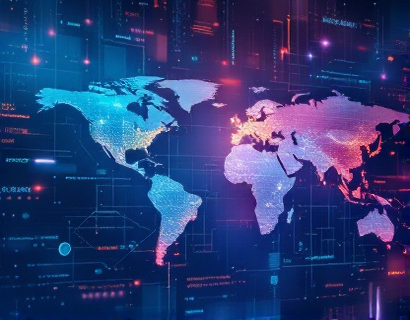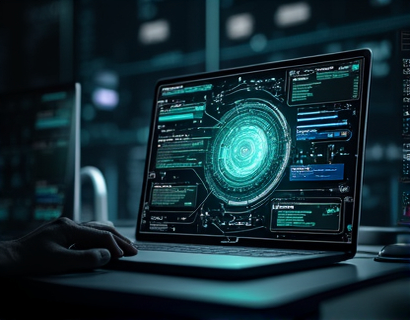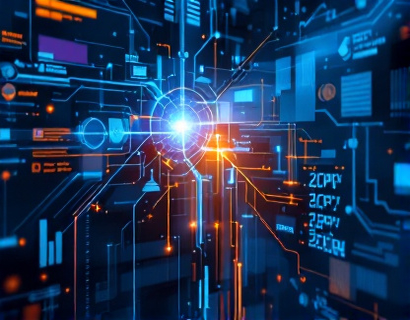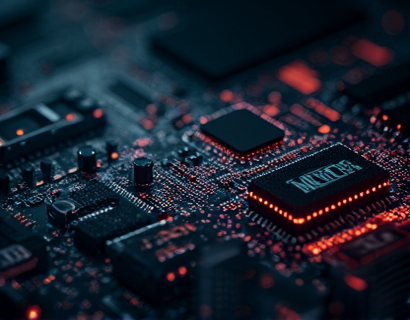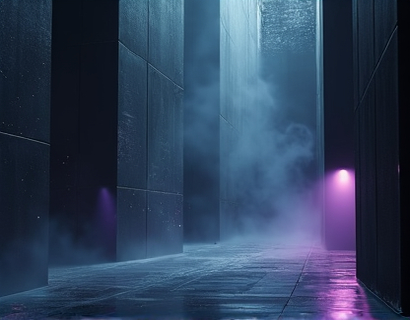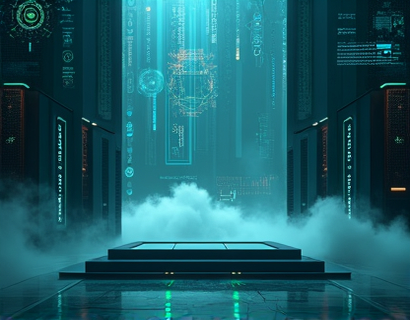AI and Blockchain: Crafting Secure and Personalized Online Memorials for Lasting Tributes
In an increasingly digital world, the way we remember and honor our loved ones is evolving. Traditional memorials, while meaningful, often lack the personalization and security that modern technology can provide. The integration of artificial intelligence (AI) and blockchain technology into the creation of online memorials offers a revolutionary approach to commemorating those who have passed. This article explores how these technologies can be harnessed to create secure, personalized online memorials that serve as lasting tributes.
The Need for Modern Memorial Solutions
As society becomes more mobile and interconnected, the traditional methods of memorialization are being challenged. Families and individuals are seeking innovative ways to celebrate the lives of their loved ones, especially in a time when physical gatherings may not always be possible. Online memorials provide a platform for sharing memories, stories, and tributes that can be accessed from anywhere in the world. However, the need for security and personalization in these memorials is paramount.
Understanding AI and Blockchain Technology
Before delving into the specifics of how AI and blockchain can enhance online memorials, it is essential to understand what these technologies entail. AI refers to the simulation of human intelligence in machines that are programmed to think and learn. It can analyze vast amounts of data, recognize patterns, and even generate content based on user preferences.
Blockchain, on the other hand, is a decentralized digital ledger that records transactions across many computers in a way that ensures the security and integrity of the data. Each block in the chain contains a number of transactions, and once recorded, the information in any given block cannot be easily altered. This technology is known for its transparency and security, making it an ideal solution for preserving sensitive information.
Creating Secure Online Memorials
One of the primary concerns when creating online memorials is the security of the information shared. Families often wish to share personal stories, photographs, and videos that hold significant emotional value. By utilizing blockchain technology, online memorials can ensure that this information is securely stored and protected from unauthorized access.
Blockchain's decentralized nature means that data is not stored in a single location, reducing the risk of loss or tampering. Each piece of information can be encrypted and linked to a unique digital identity, ensuring that only authorized individuals can access or modify the content. This level of security is crucial for families who want to create a safe space for remembrance.
Personalization Through AI
Personalization is another critical aspect of online memorials. Every individual is unique, and their memorial should reflect their personality, interests, and the impact they had on the lives of others. AI can play a significant role in this process by analyzing user preferences and generating personalized content.
For instance, AI algorithms can suggest themes, layouts, and even content based on the deceased's life history and the preferences of the family members. This could include selecting specific quotes, images, or music that resonate with the individual’s life story. Additionally, AI can help curate memories by analyzing social media posts, emails, and other digital footprints to create a comprehensive narrative of the person's life.
Features of AI-Driven Online Memorials
Online memorials powered by AI can offer a range of features that enhance the user experience. Some of these features include:
- Automated Content Generation: AI can assist in creating written tributes, obituaries, and life stories by analyzing data and generating text that reflects the individual’s life.
- Memory Curation: AI can sift through digital archives to compile photos, videos, and messages that can be included in the memorial, ensuring that no significant memory is overlooked.
- Interactive Elements: AI can enable interactive features such as virtual candles, guestbooks, and memory-sharing platforms where friends and family can contribute their thoughts and memories.
- Sentiment Analysis: AI can analyze the emotional tone of messages and tributes, helping families understand the impact their loved one had on others.
Blockchain for Transparency and Trust
In addition to security, blockchain technology provides transparency and trust in the memorialization process. Each transaction or update made to the memorial can be recorded on the blockchain, creating a permanent and unalterable record. This feature is particularly important for families who want to ensure that their loved one’s memory is preserved accurately and respectfully.
Moreover, blockchain can facilitate the creation of digital certificates for memorials, verifying the authenticity of the content and the identity of the individuals involved. This can help prevent unauthorized alterations and ensure that the memorial remains a true reflection of the individual’s life.
Building Community Through Online Memorials
Online memorials also provide an opportunity for community building. Families can invite friends and relatives from around the world to contribute to the memorial, share their memories, and support one another in their grief. This communal aspect can be particularly healing, as it allows individuals to connect over shared experiences and emotions.
AI can enhance this community-building aspect by suggesting connections between individuals who may have shared experiences with the deceased. For example, AI can analyze social networks to identify mutual friends or family members, encouraging them to share their memories and support one another.
Accessibility and Inclusivity
Another significant advantage of online memorials is their accessibility. Unlike traditional memorials, which may be limited by geographical location, online memorials can be accessed by anyone with an internet connection. This inclusivity ensures that family members and friends who may not be able to attend a physical service can still participate in the memorialization process.
AI can further enhance accessibility by providing features such as language translation, making it easier for individuals from diverse backgrounds to engage with the memorial. Additionally, AI-driven tools can assist individuals with disabilities, ensuring that everyone has the opportunity to honor their loved ones.
Ethical Considerations in AI and Blockchain
While the integration of AI and blockchain into online memorials offers numerous benefits, it also raises ethical considerations. The use of AI in generating content and analyzing personal data must be approached with caution. It is essential to ensure that families have control over the information shared and that their privacy is respected.
Similarly, the use of blockchain technology must be transparent, with clear guidelines on how data will be stored, accessed, and shared. Families should be informed about the implications of using these technologies and given the option to opt-out if they prefer a more traditional approach to memorialization.
The Future of Online Memorials
As technology continues to evolve, the future of online memorials looks promising. The integration of AI and blockchain is just the beginning. Emerging technologies such as virtual reality (VR) and augmented reality (AR) could further enhance the memorialization experience, allowing individuals to create immersive tributes that celebrate the lives of their loved ones in new and innovative ways.
For instance, VR could enable users to create virtual memorial spaces where friends and family can gather to remember the deceased, share stories, and even participate in virtual ceremonies. AR could allow users to interact with memorials in real-time, overlaying digital content onto physical spaces.
Conclusion
The combination of AI and blockchain technology presents a unique opportunity to transform the way we create and experience online memorials. By providing secure, personalized, and accessible platforms for remembrance, these technologies can help families honor their loved ones in meaningful ways. As we continue to navigate the complexities of grief and loss in a digital age, embracing innovative solutions will ensure that the memories of those we cherish are preserved for generations to come.










